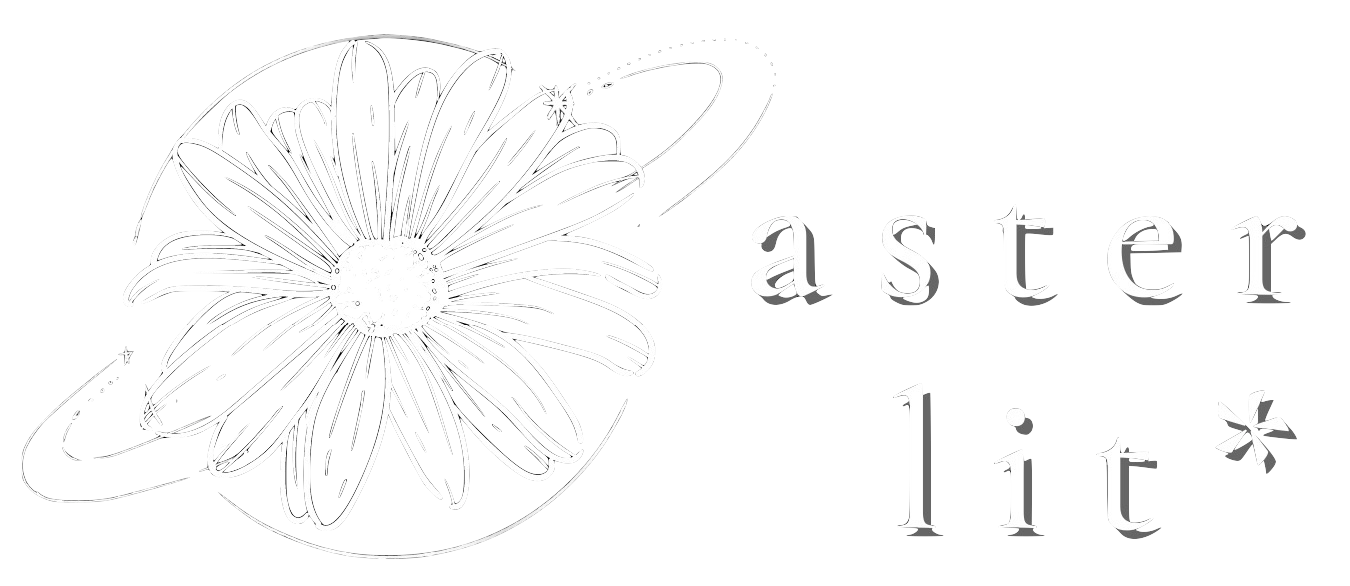
Aster Lit
Issue 1—Spring 2021
How a young Nigerian sees Joy
Gerald Ewa, Nigeria
I
Age 8
His tiny legs have just begun to learn the dance,
the dance of his fathers,
but fail at it. His Mama says he's a late dancer,
his Papa yells at her in a show of impatience
and the lad's eyes capture a picture,
delivered to the brain for storage.
Age 10
He finally learns the dance,
yet his Papa says he dances in an awkward way.
A raging fire sits on his face,
he spits venom on his Mama and digs his tail into her flesh.
This boy's eyes fearfully take a quick shot,
another picture plasters to his brain.
When he slaps his classmate, tearing her face,
his teachers scold him with the cane.
His Papa and Mama, also quick to scold—"Where did you learn this devilish act, boy?”
They forget experience is also a registered teacher.
II
Age 13, 14, 15
He still recites the anthem—"Youth are the leaders of tomorrow.”
Doesn't understand why he does, yet it sounds enticing to his ears.
His parents say soon he will wear the big shoes of his predecessors,
and one day wield the sword of wealth to cut off the head of poverty,
the common thread that binds all and sundry.
And he believes them.
Pastors, teachers, everyone recites the same anthem—that's all they know.
Age 18
He's a man; at least that's what he believes he is.
Tomorrow always comes and goes, still the same anthem,
as old as his father’s land,
perhaps older.
Now questions he must ask, but with no answers given, begins to beat the drum of his heart.
His peace is stolen,
worries plunder his soul,
doubts have been sown on the soil of his heart about things he used to believe.
Things to which he surrendered his ears, like a slave to his master,
things his feeble mind swallowed hook-line-and-sinker.
Joy is the resentment he now feels for the dance of his fathers,
the mental torture of treading in their footsteps.
There's a need to create his own steps, to dance to his own tunes.
And yet his Papa says that he's no man at all until he retrieves his tongue from his Mama's breast.
III
Joy is the murky water of history which he must swim,
paddling through the beastly storms of mental colonialism, fear, and nepotistic ideologies
to find himself,
to find the truth: the meaning of a country in the similitude of a defeathered bird,
of a flag staggering, drunk with blood,
perhaps to find his future (if any) and that of his seeds.
Age 25
He's in and out of the four walls of the University.
A first class graduate,
he wears his smile and confidence like beautiful apparel.
Surely the hands of providence
cannot be that cruel or stingy with him.
Praises are showered on him.
The family's saviour has risen.
IV
Five years later and still counting,
he's become part of that cesspool of joblessness like the rest.
His hard earned pride is crushed,
confidence missing.
Most times he's clothed in shame.
His brain is crammed and the memories are leaking out.
With time he sees joy everywhere:
in the young boy hawking pure water,
carrying the boiling sun on his head;
sweating, famished, afraid, many unanswered questions on his chest.
He sees it in the old lady begging bread from a mannequin,
the young child rounded up, cooked alive and his ashes fed to the sky,
a punishment for being hungry.
While the emperor is clad with greed,
Joy is in the mouth of the earth
where a horde of his brothers and sisters lie
roasted like suya. No one is talking or doing anything.
The emperor has buried his tongue in the tomb of lies.
Allah gives. Allah takes. Alleluia.
And the cloud of injustice and inequality continues to sit in the sky.
Ewa Gerald Onyebuchi is a Christian writer based in Nigeria. He writes both short story and poetry. Some of his works have been published in Brittle Paper, Bengaluru Review, and elsewhere. His poem, "Mother Nature is ill," won the 2020 Evolving Landscapes Competition. When not writing, he plays video games and finds other ways to pass time. You can catch him on Instagram, @Gerald Ewa, and facebook, Gerald Ewa.
